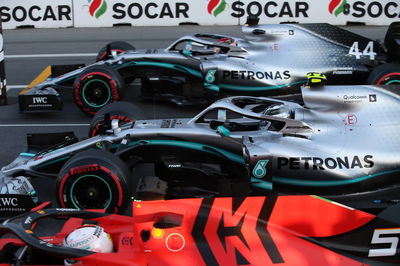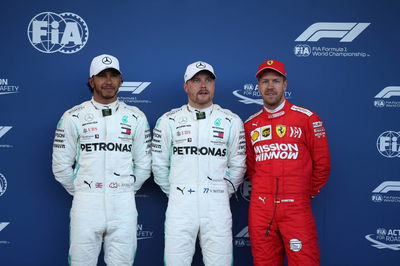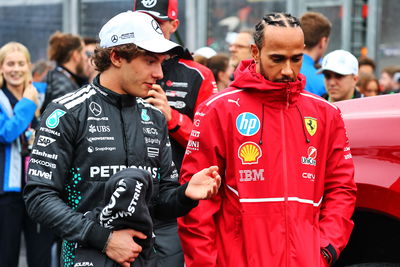Ferrari suffered ‘double whammy’ in Baku - Wolff
The combination of the tow effect and dropping track temperatures acted as a “double whammy” for Ferrari during Azerbaijan Grand Prix qualifying, according to Mercedes Formula 1 boss Toto Wolff.
Mercedes locked-out the front-row of the Baku grid during a dramatic qualifying session, as Valtteri Bottas usurped teammate Lewis Hamilton by just 0.059s to snatch pole position during the final runs of Q3.

The combination of the tow effect and dropping track temperatures acted as a “double whammy” for Ferrari during Azerbaijan Grand Prix qualifying, according to Mercedes Formula 1 boss Toto Wolff.
Mercedes locked-out the front-row of the Baku grid during a dramatic qualifying session, as Valtteri Bottas usurped teammate Lewis Hamilton by just 0.059s to snatch pole position during the final runs of Q3.
The duo ended up over three tenths clear of the lead Ferrari of Sebastian Vettel, who was left in two minds about his qualifying strategy after opting to run at the front of the queue ahead of his final flying lap, meaning he got the optimum track position but was unable to benefit from the tow - something Wolff felt was “advantageous”.
“The tow effect is massive,” Wolff explained.
“Let’s say a minimum tow following other cars within a few seconds can gain you between one and three tenths, and the mother of all tows can gain you around Baku maybe six tenths. It is a real disadvantage.
“Cars in front of you that just cut a hole in the air is really good around here and advantageous, so I think it was a double whammy.
“He [Sebastian] was out on himself with no tow and the ambient temperatures and track temperatures came towards us at the end. Our car got better the colder it went.”
Mercedes had trailed Ferrari by some margin up until qualifying and Wolff believes cooler conditions played into his side's hands after two lengthy red-flag delays had disrupted the session.
“They [Ferrari] were very quick yesterday and they were extremely quick in FP3 this morning - that was something which we didn’t know how to solve, because the gap was big,” Wolff said.
“But when you see this kind of gap, it’s never the car has suddenly lost performance, because you know there is performance, it’s just that you’re not having the tyre in the right operating window.
“The longer the session went, the more we got it there, and towards the end, from a car that was not making the drivers happy in the morning, we ended up with a car in Q3 that was good.
“I think we gained relative performance with the dropping temperatures,” he added. “I think that probably with the track and ambience of this morning they [Ferrari] were in a league of their own, and once it got cooler, probably the competitive order changed.”













